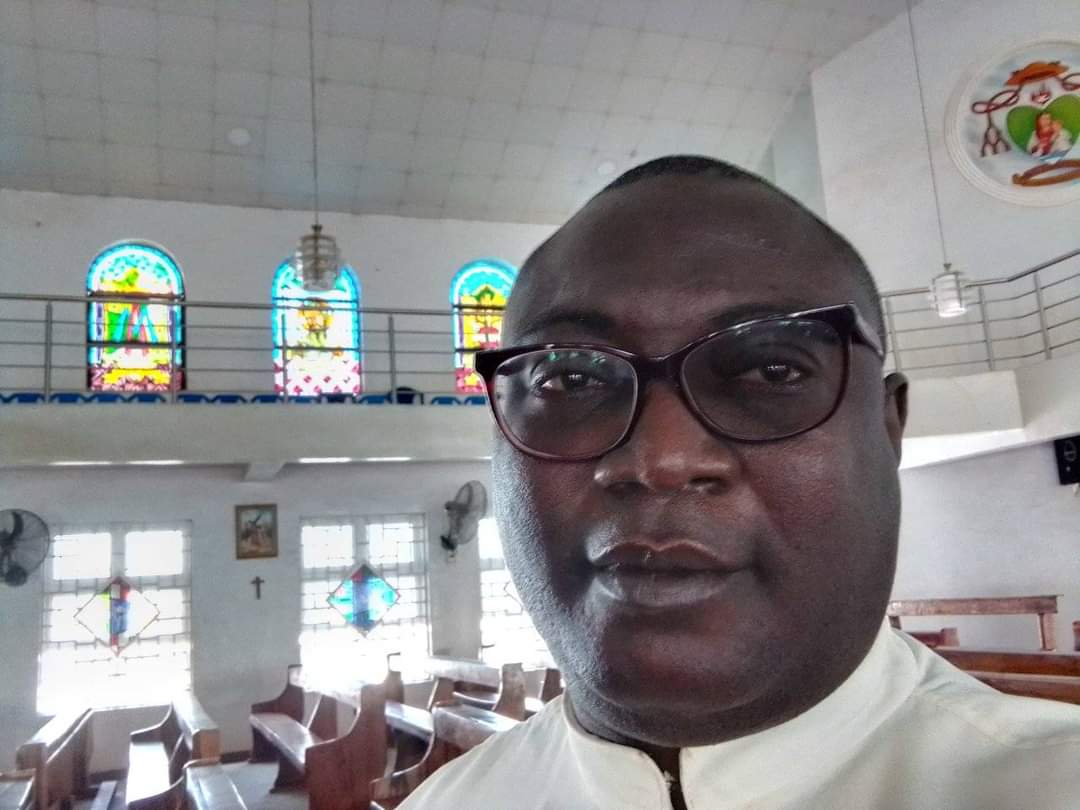The Communion of God Persons

Solemnity of The Most Holy Trinity, Year A (04/06/2023)
(Exodus 34:4b-6,8-9; Daniel 3:52-56; 2 Corinthians 13:11-13; John 3:16-18)
Fr. Samuel Odeh
Today we celebrate our faith that the God we worship has revealed himself to us as a union of three God-persons: God the Father, Jesus the Son, and the Holy Spirit. We call it the mystery of the Holy Trinity. This mystery is not a mathematical challenge or puzzle to be solved: how can we say we believe in one God but relate with him as three distinct persons? How come we have one God who is also a union of three God-persons? The mystery of the Holy Trinity which we celebrate today is an invitation to us to share in the inner life of God which is a communion of persons. In God’s inner self, there exists a family of persons calling us to come and share in the very life and communion of God.
In our first reading from the Book of Exodus, we meet the God of Moses as a covenant-keeping and covenant-renewing God. God invites Moses to the mountain that he may give him the commandments of his laws a second time after Moses destroyed the first tablets of the Law when he saw the people of Israel worshipping the golden calf they had made in his absence. God reintroduces himself as a God with the personal qualities that guarantee a sustained communion with his people: “The LORD, the LORD, a God merciful and gracious, slow to anger, and abounding in steadfast love and faithfulness…” (Exodus 34:6). Moses then prostrated before God and begs him to reestablish communion with the people.
Our gospel reading is taken from the passage about Jesus’ meeting with a Pharisee called Nicodemus in which Jesus tells him that no one can have eternal life unless they are born of God from above. God the Father sent Jesus into the world so that believers would have access to the communion and life of the Blessed Trinity: “For God so loved the world that he gave his only Son, that whoever believes in him should not perish but have eternal life” (John 3:16). The Trinitarian God of Father, Son, and Spirit exists as a communion of a love that saves and not of a one that condemns. God’s action in history has been to save and not to condemn. God the Father, out of love for the world, sent his Son into the world in order to save it. Through the death and resurrection of the Son, we have been given the gift of the Holy Spirit. Communion with the Trinity saves and does not condemn.
How are we to respond to the invitation to share in the communion of the inner life of God? We must respond by accepting Jesus as our Lord and Savior if we are to gain access to the life of the Blessed Trinity. All we have to do is to have faith in Jesus and welcome others into our fellowship with God. When we do this we shall become, like Christ, persons living in communion with God and sharing that communion with our brothers and sisters. May our response to God’s call to welcome the love and life of the Holy Trinity into our own lives be a generous one.
As we pray most times at the beginning of Mass, “The grace of the Lord Jesus Christ and the love of God and the fellowship of the Holy Spirit be with you all” (2 Corinthians 13:14). Amen!